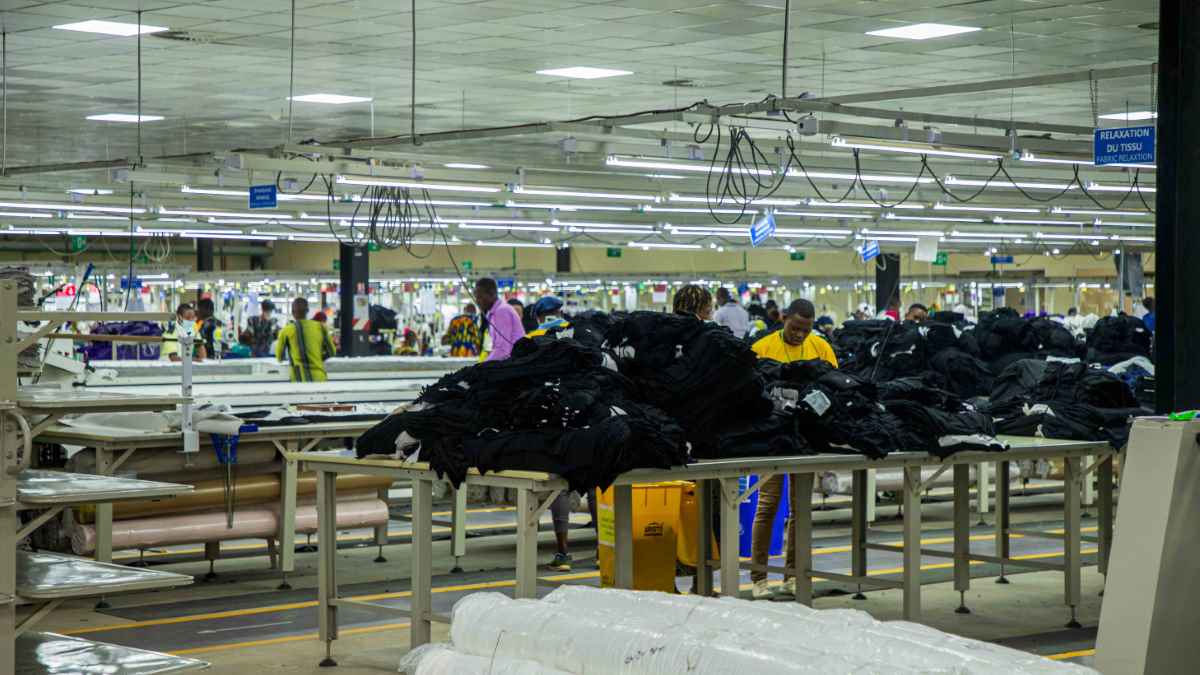The goal is to speed up economic transformation through stimulation of SMEs, including women’s SMEs, industrial modernisation and exports, making the economy more competitive and promoting private investment
ABIDJAN, Ivory Coast, June 26, 2024/APO Group/ —
The Board of Directors of the African Development Fund (https://apo-opa.co/3VAvcHY), the concessional window of the African Development Bank Group (www.AfDB.org), has approved a loan of US $14.04 million to Guinea for implementation in the country of the Industrial Development and SME Resilience Support Project.
The financing comes from Pillar 1 of the Transition Support Facility (https://apo-opa.co/4eIc1VA), an AfDB financing instrument for fragile and transition countries. It will enable Guinea to strengthen its institutional capacity to promote industrial development and resilience of small and medium-sized enterprises (SMEs).
The project focuses on improving the capacity of the West African country to plan, coordinate, monitor and promote industrial development. It will also enable a programme to be put in place to support the growth and resilience of small enterprises and industries and to strengthen the delivery of public services to private business.
The main challenge, which the project seeks to address, is the lack of institutional capacity to steer and implement industrial policy at macroeconomic and sectoral level. This also applies at the microeconomic level (the level of firms).
Support from the African Development Fund will enable Guinea to address the root causes of fragility and consolidate sources of long-term resilience
Ousmane Fall, Director of the Bank’s Industrial Development and Trade Department, stressed that Guinea has great potential for industrial development, but until now this has remained largely untapped.
“Support from the African Development Fund will enable Guinea to address the root causes of fragility and consolidate sources of long-term resilience through institutional development to achieve sustainable and inclusive industrialisation in Guinea, promoting private sector development and the consolidation of a peaceful and resilient society,” Fall said.
Support from the Fund will enable Guinea to acquire the capacity it needs to promote the development of new productive assets that can diversify the economy and create jobs. The support will also stimulate structural transformation and generate the productivity gains that are needed to improve the quality of life of the people of Guinea and to strengthen the country’s economic and social resilience.
The project has three components: strengthening of planning capacity and steering and implementing development policy; integrated support for resilience, growth of green industry and growth of SMEs-SMIs; project management and coordination.
The project will directly or indirectly benefit all participants of private-sector industry in Guinea. Women and young people (female and male) will benefit from increased opportunities thanks to strengthening the support ecosystem to the private sector, helping them to take advantage of the opportunities offered by a new industrial policy and the provisions of the law on local content.
Strengthening of institutional capacity for industrial policies should have long-term effects for development in Guinea. The goal is to speed up economic transformation through stimulation of SMEs, including women’s SMEs, industrial modernisation and exports, making the economy more competitive and promoting private investment. Improvement of human resources will also be a priority, with special focus on young people and on the reduction of gender inequalities and other disparities.
The project reinforces AfDB Group’s ongoing work in Guinea aimed at developing agro-industry and specialised agro-industrial processing zones, developing the private sector by bringing businesses out of the shadow sector, and promoting entrepreneurship among young people and women.
Distributed by APO Group on behalf of African Development Bank Group (AfDB).
